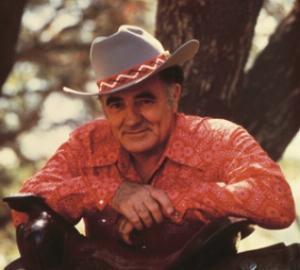Saturday was a beautiful day and I took a long walk.
A long walk. About two miles of a walk.
On my walk I listened to The Art of Manliness Podcast interview with Beau L’Amour, son of Louis L’Amour and manager of his estate. If you’ve never read L’Amour’s autobiography, Education of a Wandering Man, it well worth having on your shelf. I remember the first time I opened it. I immediately grabbed a notebook and started writing down quotes. If you have read the autobiography, you may not learn much from this podcast, but what makes it special is hearing a son speak about his father.
His father, an absolute legend.
The first thing that stood out to me about L’Amour was that before he was a writer he was an amateur boxer. Many prolific writers were prodigious walkers (Tolkien, for example), but others were students of the sweet science. Robert E. Howard, as is clear from the cover of Mark Finn’s biography, loved to fight. As did Jack London and Ernest Hemingway. Kinda makes me want to start using the heavy bag hanging in my basement. Not only did knowing something of combat allow them to write violence realistically and with precision, it also reminds us that movement and creativity are intertwined.
Even when L’Amour was writing hours a day just to pay the bills, he still set aside two hours for exercise.
At BasedCon I had breakfast with an author who works on multiple books and series at the same time. He shared with me that he keeps his mind fresh by occasionally picking up a banjo to work a different area of his brain. To exercise well, or pick strings in a way that produces a tune, demands total focus. Imagination has to get switched off so that details, real things, get done right. There’s also the satisfaction of doing a thing to completion that provides clarity of mind. It feels good.
When we feel good, we can write good.
The second thing that really impressed me as I listened to Beau talk about his father was that for a significant part of his career Louis had to write three or four books a year just to make ends meet. He learned to write quickly cranking out short stories for the pulps, and in his autobiography L’Amour encourages aspiring writers to master short stories before tackling novels. But it’s worth considering that he was selling his short stories and working with an agent and publisher for his novels. If he was starting out today he’d probably be self-publishing, that is, selling directly to his readers.
And he’d still have to write at the same pace.
With the same quality.
It’s a daunting thought. The advantage of writing prolifically (aside from improving with practice), is that every time a new book comes out the old books get renewed attention. It’s a personal pyramid scheme that works for you. I don’t know that I have it in me to write at that pace, but it’s certainly something to which I aspire. As much as things have changed in publishing and marketing, the fact remains that only the successful writers write and write a lot.
Maybe I’m not hungry enough.
Finally, it’s worth noting that L’Amour read on wide variety of topics. In his massive library there are classic works of philosophy, and obscure histories of specific regions. Much of it was for research, to be sure, but I expect that the majority of his reading was things that interested him. Hemingway also famously devoted several hours a day to reading to replenish himself after pouring out words through his typewriter. Since acquiring several armfuls of books at a recent library sale, I’ve felt a renewed desire to read. While it’s nothing deep, it’s all different from what I write.
So there it is: exercise, write, read.

























